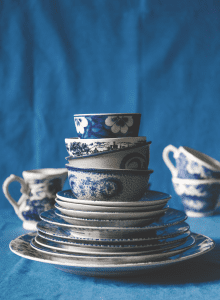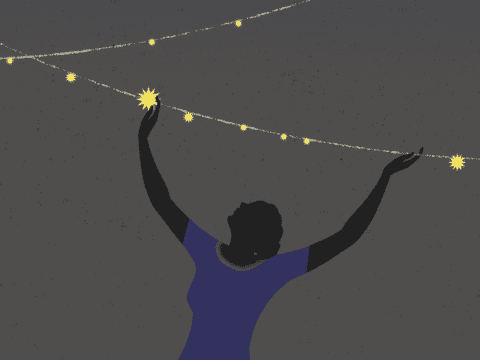It was over when they locked eyes. My mom calls it love at first sight — a whirl of butterflies filled her up when she glanced at my father in 1996. It was trivia night at her favourite downtown Ottawa piano bar. When she couldn’t answer a question about classic movies, Roy, eyes twinkling, cryptically passed her a note with the answer — 1959’s Imitation of Life — and asked her out to breakfast. He recited Robert Service poetry to her over crepes, and, as they parted ways, he handed her a key to his house. On their second date, he said he wanted their child to be named KC, just those two letters. “I just think it’s a neat name,” he told her.
They got married at sunset, under a July sky of brilliant pink. A full moon blazed over them as he kissed her, Frank Sinatra scoring the fluorescence of their love.
You may unsubscribe from any of our newsletters at any time.
Four months later, my father was shovelling snow on a wintry November morning when his heart stopped. He collapsed to the ground, his chest in searing pain, as if molten lava were melting his insides. He made it to the bathroom before dying in my mom’s arms. First responders spent an hour trying to pump life back into his 55-year-old body. My mother watched helplessly as her husband slipped away, their life together cut tragically short before it could properly begin.
January came, and with it, the worst glacial storm in memory. My mom braved deadly balls of ice to receive an artificial insemination, clinging to the hope of a child, of something to live for. After a month, her wish came true: a baby was growing inside her. When he arrived, she named him Roy Kassidy Conor. Roy KC.
Years later, melancholy would fill her brown eyes as she explained to her young son how he was named: by his father and for his father.
PART ONE
Indigo plates. Desperately, my mother wants those indigo plates. They aren’t all that interesting, just rounded squares with charcoal bases and dark blue tops. But they’re functional, and easy to clean. Perfect for a struggling single mom and her hyperactive eight-year-old. Indigo is also Mom’s favourite colour.
But money’s tight, and she can’t justify splurging on kitchenware when there’s a child to feed and baseball practice to pay for, and bills and a mortgage and a half-empty gas tank in the old Subaru.
Still, she longs for the plates, frequently bringing them up, pausing each time we pass them in the aisles of our local home furnishing store. Until one day the plates disappear. My mother frantically searches for answers, hoping the store is just out of stock, praying they’re available somewhere else. But her worst fears are realized: the indigo plates are discontinued.
She’s visibly upset. I have never seen her buckle like this. My mother has always been a vision of strength — a steadfast oak rooted to the ground, ready to withstand any hurricane that might come hurtling toward her. But the plates seem to represent some kind of hope, a hope that has been suddenly taken from her yet again.
I can’t just sit idly by and watch my mother despair. I must act. So I do what any conscientious third-grader would: I write to Santa.

I beg him to deliver the plates to my mother. I know that if anyone could magically produce a set of discontinued dishes, it had to be Mr. Claus. I sign my letter in loopy, juvenile script, and I address the envelope to the North Pole. That’s where Santa lives, my mother tells me, somewhere very cold and very far away. “You can see the northern lights from up there,” she says. “I’ve always wanted to see the northern lights.”
I do not know exactly what the northern lights are, but I know they’re beautiful and colourful, and that my mother would very much like to visit Santa and see them someday.
A few short days before Christmas, to my utmost astonishment, Santa responds. “As you know, Christmas is about giving and love and I believe that you are a wonderful little boy for thinking about your Mother and what would make her happy,” he writes. “I know that you make her happier than any gift that I could possibly give her, but I will speak to my elves about those dishes…”
Finally, it’s Christmas morning. I bolt upright at the crack of dawn and drag my groggy mother from bed. I dart to the lit tree in my living room, eyeing the candy-coloured gifts beckoning me from the evergreen’s base. From the corner of my eye, I catch a glint of blue.
I spin to my right and face the dining room. Awestruck, I take in the most magical sight my eight-year-old eyes have ever enjoyed. Intricately displayed on my dining room table are the dishes, stacked delicately on top of each other. They cover the table, drowning it in a sea of deep blue. Beside them lies a tiny card: “To Mom, Love Santa.”
PART TWO
I’m in. I can’t believe it. I’m headed to Yukon. I had submitted my application two weeks late, slapping it together in a moment of passion, hoping for some adventure, some way to interrupt the vicious boredom that invariably pervades summer vacation. What better way to do that, I thought, than with a program like Stories North — an initiative that brings promising journalism students to Yukon to teach them in-person Indigenous reporting skills. I would learn about reconciliation, my identity as a settler, my place on this land.
After receiving my acceptance, I realize I haven’t thought it through. Where’s the money going to come from? How am I going to get five weeks off work? Am I really good enough to face the demands of this program? My mind begins to spin. Compulsively, I call my mom. Calmly, gradually, generously, she talks me down. “I’m so proud of you,” she says. “I love you.”
She helps me figure out what to tell my employers, how to convince them of the importance this program holds for my burgeoning journalism career. She alleviates my financial burden, contributing money she probably doesn’t have, money I only take on the condition that she lets me pay it back. She refuses. She’ll take an alternative form of payment: she just wants a picture of her son standing underneath the northern lights.
More on Broadview:
- A Blue Christmas service gave me fresh perspective on my parents
- ‘Christmas star’ to shine on winter solstice
- A different Christmas still offers a chance for growth
A pang of guilt vibrates my core. The North is her dream, not mine. She should be the one to trudge through muddy mountain trails, to have spontaneous bear encounters, to raft down an ancient river. She should be the one to witness the northern lights.
But it’s me. I’m going, the one who thoughtlessly applied. Just as I thoughtlessly demanded the plates from Santa 13 years before, not considering that she would have to track them down and dip into her savings just to make sure her young son still believed that a magic fat man broke into their home and tossed some gifts under the tree. I steel myself. “I’ll pay you back,” I say. “I’ll pay you back every penny, and I’ll get you that picture of me under the northern lights.”
I also promise that one day she’ll see them, too, that we’ll see them together and that I’ll pay for all of it. She smiles. “Just promise me you’ll get me that picture,” she says. “That will be enough.”
PART THREE
Our plane touches down in Whitehorse. The sun beams overhead. Yukon is warmer than I expected. I immediately start thinking about how beautiful the northern lights will be. I’m in disbelief that I’ll get to experience their shimmering extravagance first-hand.
Maybe the lights will pop up tonight, I think, above the sprawling valley that is Whitehorse. I spend the day glancing out my window, waiting for the sun to go down. It never does.
Intellectually, I had always known the North was the Land of the Midnight Sun, but I had, stupidly, ignored that fact. Aurora borealis, I’m later told, is easiest to see in the long dark nights in the dead of winter. It’s a consolation prize for northerners who have to endure the otherwise rayless bitter cold. Unfortunately, I had chosen the middle of summer for my epic quest to capture the lights for my equally radiant mother.
Disappointed, I decide to come up with a Plan B. My mom deserves the magic of the North. But if I can’t draw it out of the sky, where do I turn?
My quest for magic leads me to a local bookstore. The wooden building has a sign out front boasting Yukon’s largest selection of used books. Inside, shelves upon shelves of books greet me. The unmistakable aroma of aging paper fills my nose.
My mom deserves the magic of the North. But if I can’t draw it out of the sky, where do I turn?
I quickly find a “Yukon” section of books. My eyes are drawn to an antique cupboard. Dusty glass protects the even dustier books inside. Upon closer inspection, I discover that all these books are by the same author: Robert Service. The name rings a bell, but I can’t quite place it.
I ask an employee to unlock the cupboard. She explains that Robert Service showed up in Dawson City, Yukon, a decade after the Gold Rush ended. Inspired by the epic tales of men forging through the Klondike in search of fortune, Service put pen to paper and crafted poetry that painted Yukon as a cross between El Dorado and Jack London’s The Call of the Wild. He’s now seen as the “Bard of the Yukon,” and his work firmly established the territory as a place where the lines between mythology and reality blur.
The cupboard door clicks open, and I select a volume of Service’s collected poems. I turn to one of his most famous: The Cremation of Sam McGee. “There are strange things done in the midnight sun / By the men who moil for gold,” it begins. “The Arctic trails have their secret tales / That would make your blood run cold.”
Suddenly, my blood runs cold. The Cremation was the poem my dad recited to my mom on their first date. Service was my dad’s favourite poet. Without these spooky, swirling lyrics, I might never have been born.
I slam the thick volume on the employee’s desk, fork over $40 and dart to the nearest post office. As I stand in line, impatiently eyeing the lethargic postal worker, I spot a spinning rack filled with postcards. An image of dancing blues and greens jumps out. I walk over, forfeiting my spot in line, and am delighted to find a postcard bearing the stuff of pure magic.
Before I tuck the northern lights into Robert Service’s first pages, I grab a pen and sign the postcard as any conscientious 20-year-old would: “To Mom, Love Santa.”
This essay first appeared in Broadview’s December 2020 issue with the title “Northern magic.”
***
KC Hoard is a writer in Toronto.
We hope you found this Broadview article engaging.
Our team is working hard to bring you more independent, award-winning journalism. But Broadview is a nonprofit and these are tough times for magazines. Please consider supporting our work. There are a number of ways to do so:
- Subscribe to our magazine and you’ll receive intelligent, timely stories and perspectives delivered to your home 10 times a year.
- Donate to our Friends Fund.
- Give the gift of Broadview to someone special in your life and make a difference!
Thank you for being such wonderful readers.
Jocelyn Bell
Editor/Publisher













